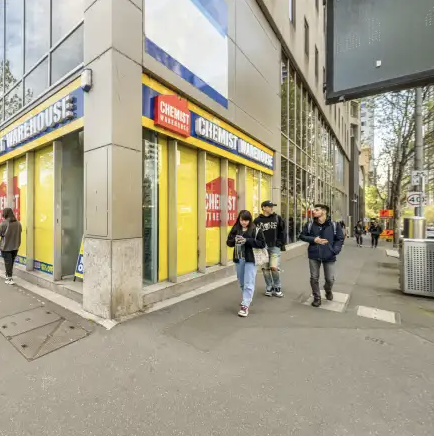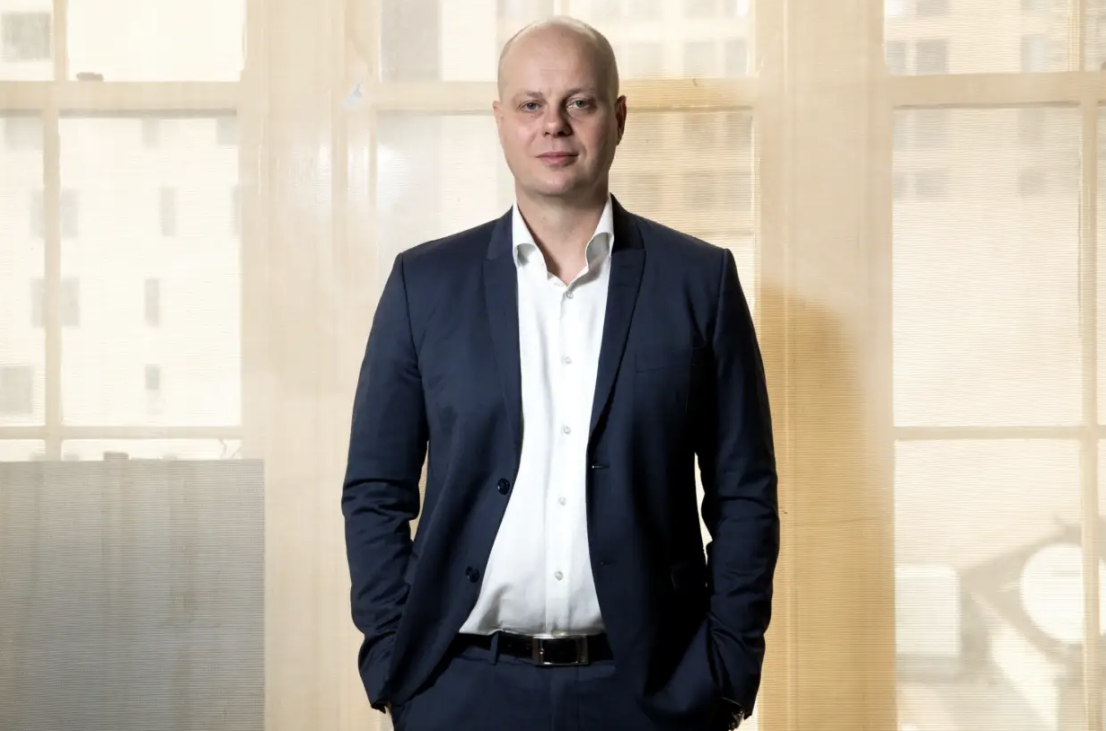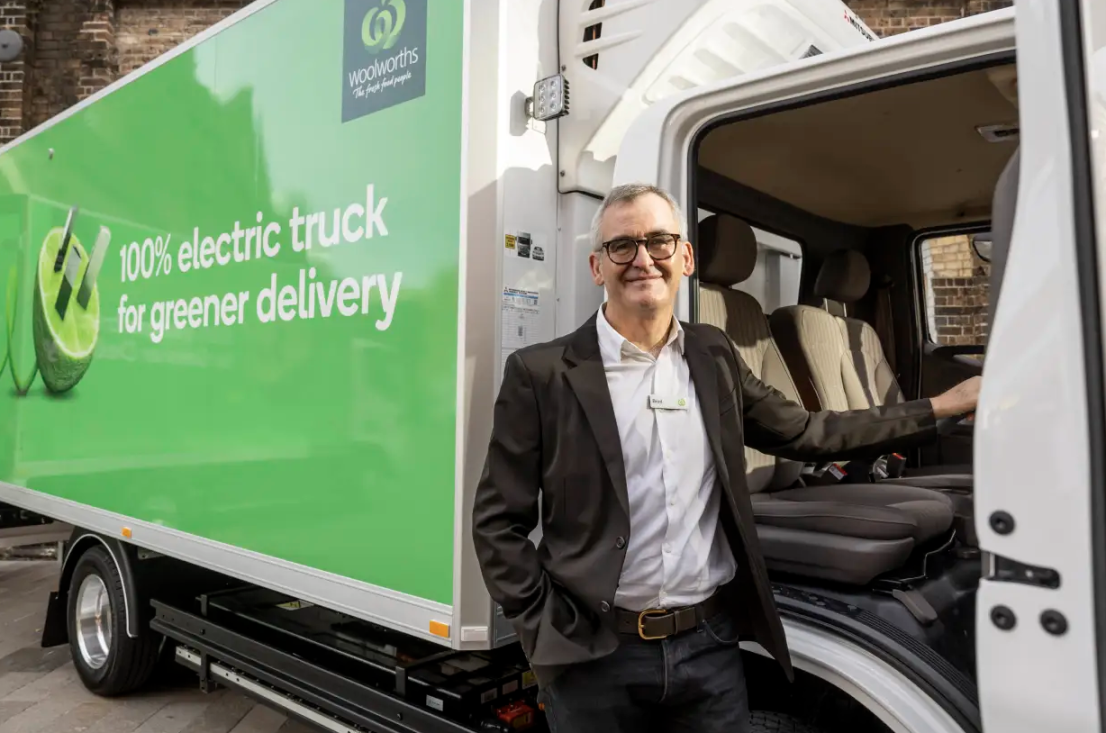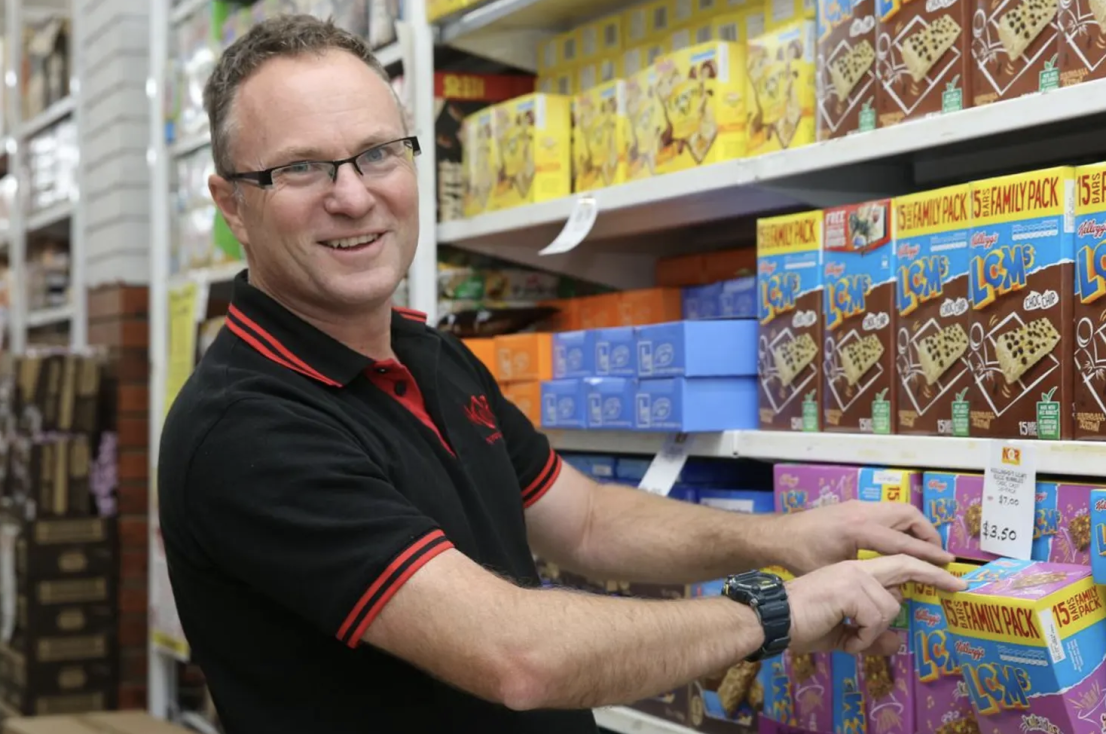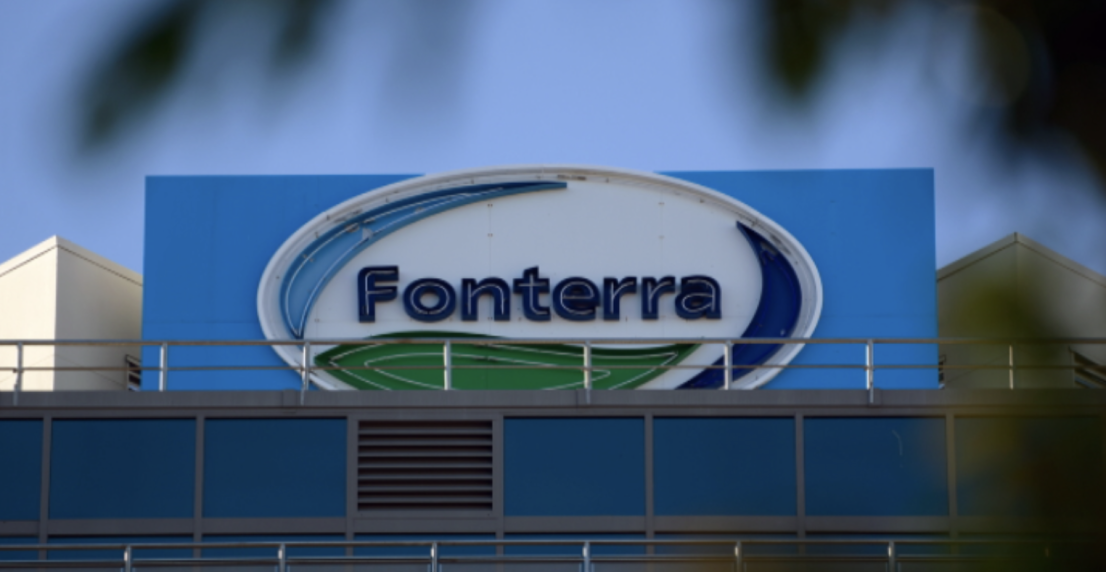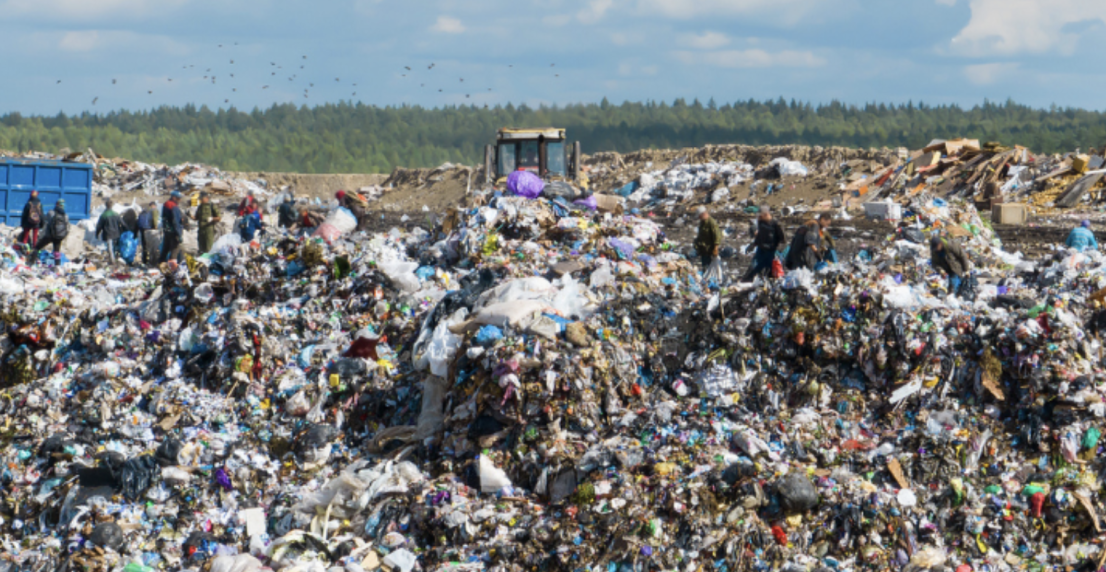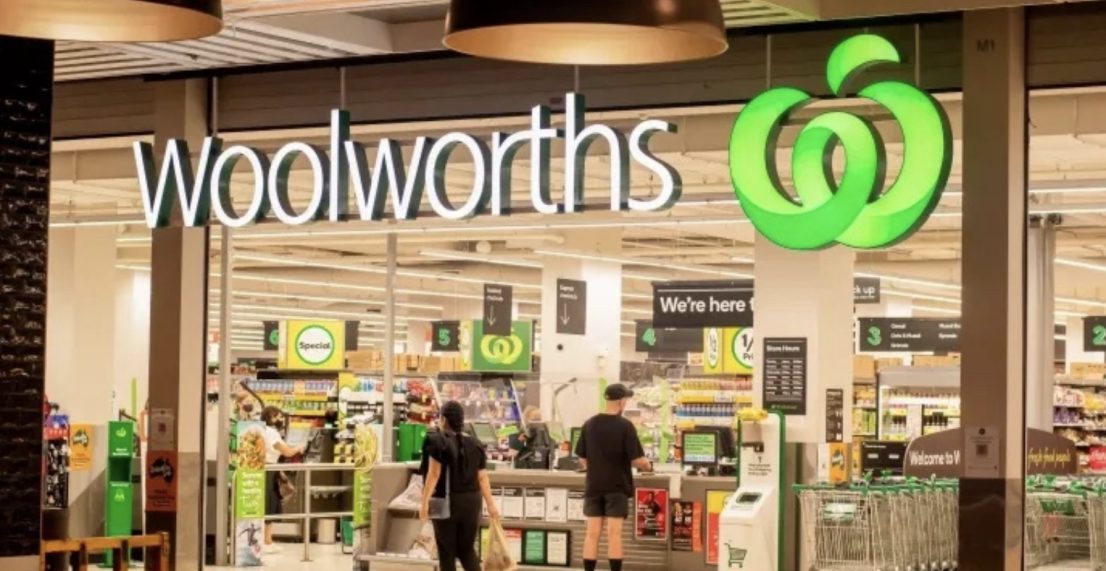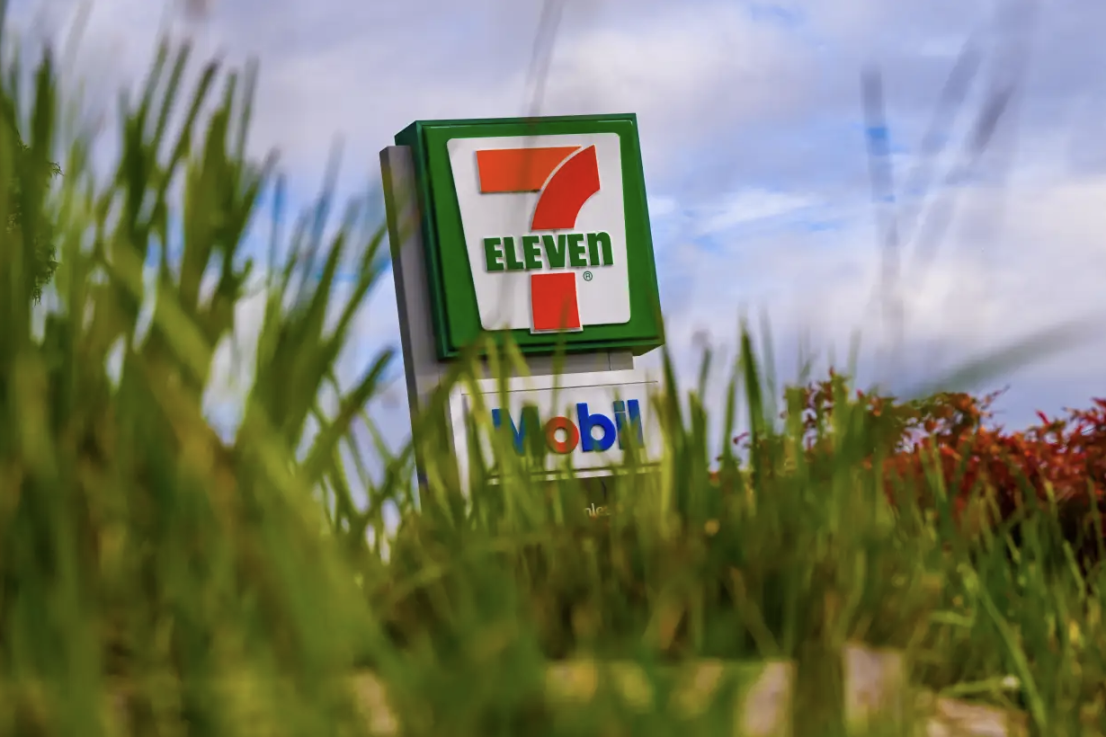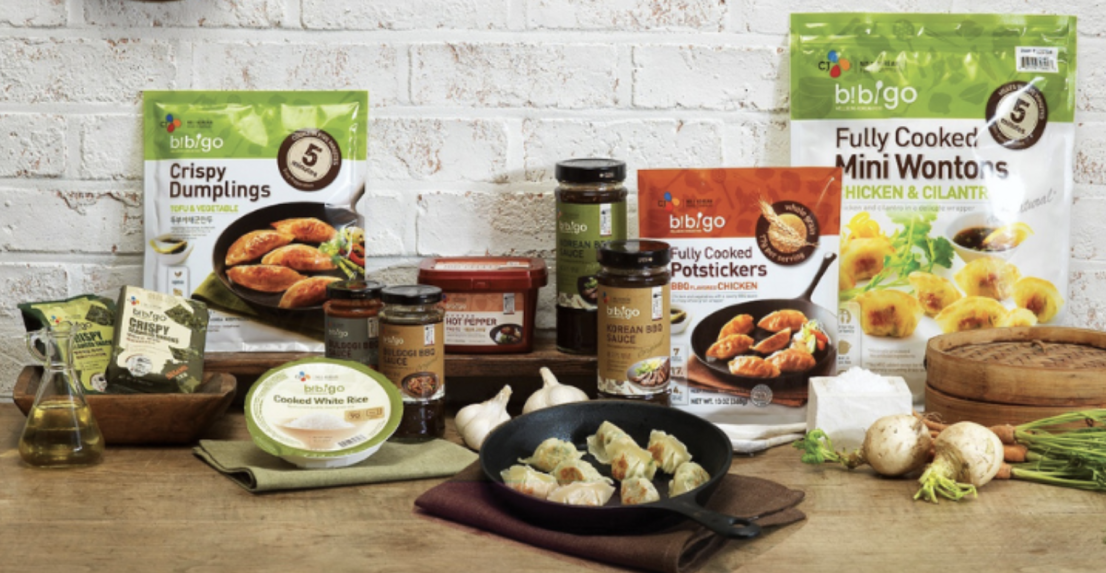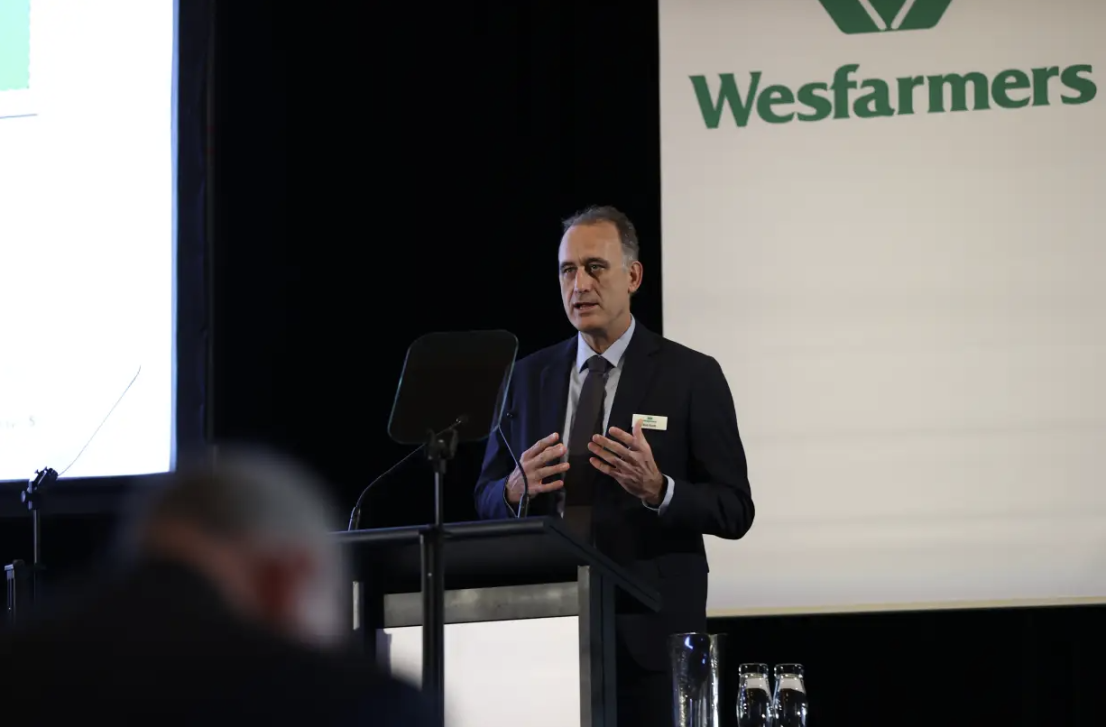
The boss of retail powerhouse Wesfarmers, Rob Scott, says there is no doubt consumers are finding it tougher today than six months ago, and is bracing for an even more difficult half with rising costs continuing to pressure both consumers and businesses.
The head of the Perth-based conglomerate, which owns Bunnings, Kmart and Officeworks, told investors at its Sydney strategy day that “the honeymoon is very much over” after the past few years of government handouts and ultra-low interest rates.
“Household costs in terms of mortgage rates, power costs, the costs of doing business in businesses are going up, which will lead to potentially more inflation,” he told The Australian Financial Review. “What that means is that consumers are being more value conscious.”
Mr Scott said shoppers were trading down to cheaper products, and population growth accelerating out of COVID-19 was positive for many of Wesfarmers’ businesses, which range from Priceline-parent Australian Pharmaceutical Industries, to chemicals and fertilisers.
On Tuesday, Wesfarmers skipped making a higher offer for listed Botox clinics operator Silk Laser Australia. API had offered $3.15 cash per share for Silk but was topped by Hong Kong’s EC Healthcare with a proposed a $3.35 a share offer. API is separately in talks with InstantScripts, according to Street Talk, with a possible deal to be struck as soon as next week.
Bunnings, Wesfarmers’ biggest earner generating $17.8 billion in sales and $2.2 billion in earnings, signalled opportunities in pets and the rollout of its commercial power tools business, Tool Kit Depot. Its Beaumont Tiles has expansion plans into Western Australia over the next five years.
Hardware chain boss Mike Schneider said Tool Kit Depot was playing a more important role in building business-to-business relationships. “We see big opportunities for growth in this area,” he told investors.
Mr Schneider said maintaining Bunnings’ low-costs was pivotal, with a nod to trials using robots to optimise stock replenishment with overnight scanning and electronic shelf labelling.
Its expansion into pet care will help drive sales at Bunnings, while sales of hardware were flattening. There is strong growth in the commercial business which constituted about 37 per cent of group sales, he said.
Across the economy, hardware industry sales in March went backwards, according to Australian Bureau of Statistics data.
Anko overseas
The boss of Wesfarmers’ discount chain Kmart, Ian Bailey, told investors the retailer was targeting European expansion for its home brand Anko. In Canada, Kmart launched Anko with Hudson Bay Company and a store-in-store concept with Zellers, which includes apparel, toys, pets and home.
Mr Bailey is targeting Gen Z and beauty as key areas of growth for Kmart: “Beauty is a category where we see a strong consumer demand for value, especially amongst younger customers.”
Its slimmer network of Target stores is now profitable. Overall, Mr Bailey said input costs such as cotton are falling, but currency was the big unknown. With power and wages bills increasing, productivity measures such as better rostering were important.
Wesfarmers’ net capital expenditure for the 2023 financial year will be between $1.1 billion and $1.2 billion. Mr Scott believes Wesfarmers has more growth opportunities across the portfolio today than in the past two decades.
“Understandably, there’s a lot of focus on the consumer given we have a number of retail businesses, but sometimes what people overlook is that we’ve invested over a billion dollars in a new lithium business that is going to start generating cash flows for our shareholders next calendar year. That’s a really exciting opportunity for our group,” he said.
Before the strategy day, JPMorgan analyst Bryan Raymond downgraded his earnings per share forecasts for next financial year and 2025 by 2.9 per cent and 2.5 per cent, following commodity price updates for its WA lithium project Mount Holland and the exit from Coles. He has a $47 target price and an “underweight” rating.
